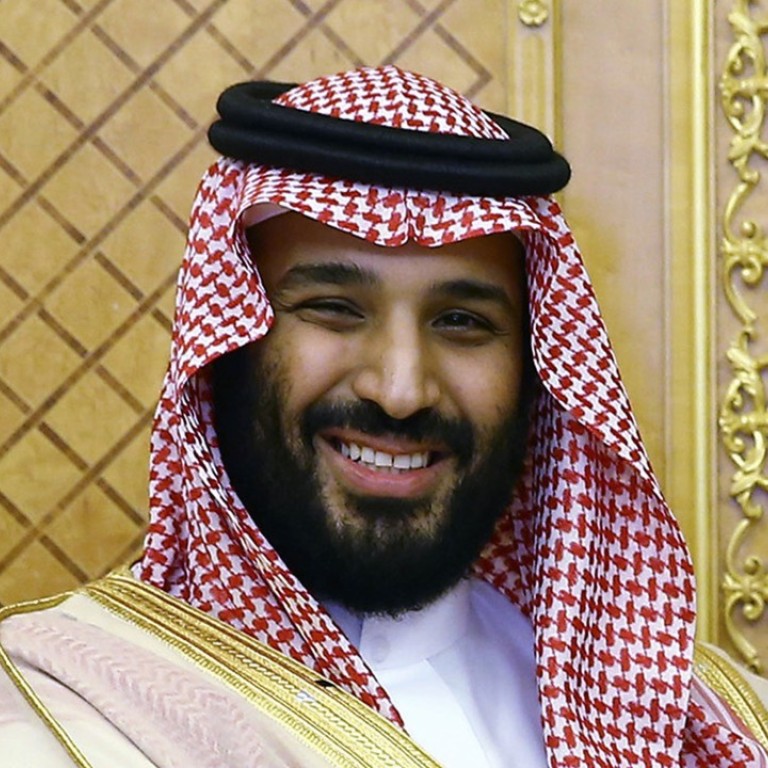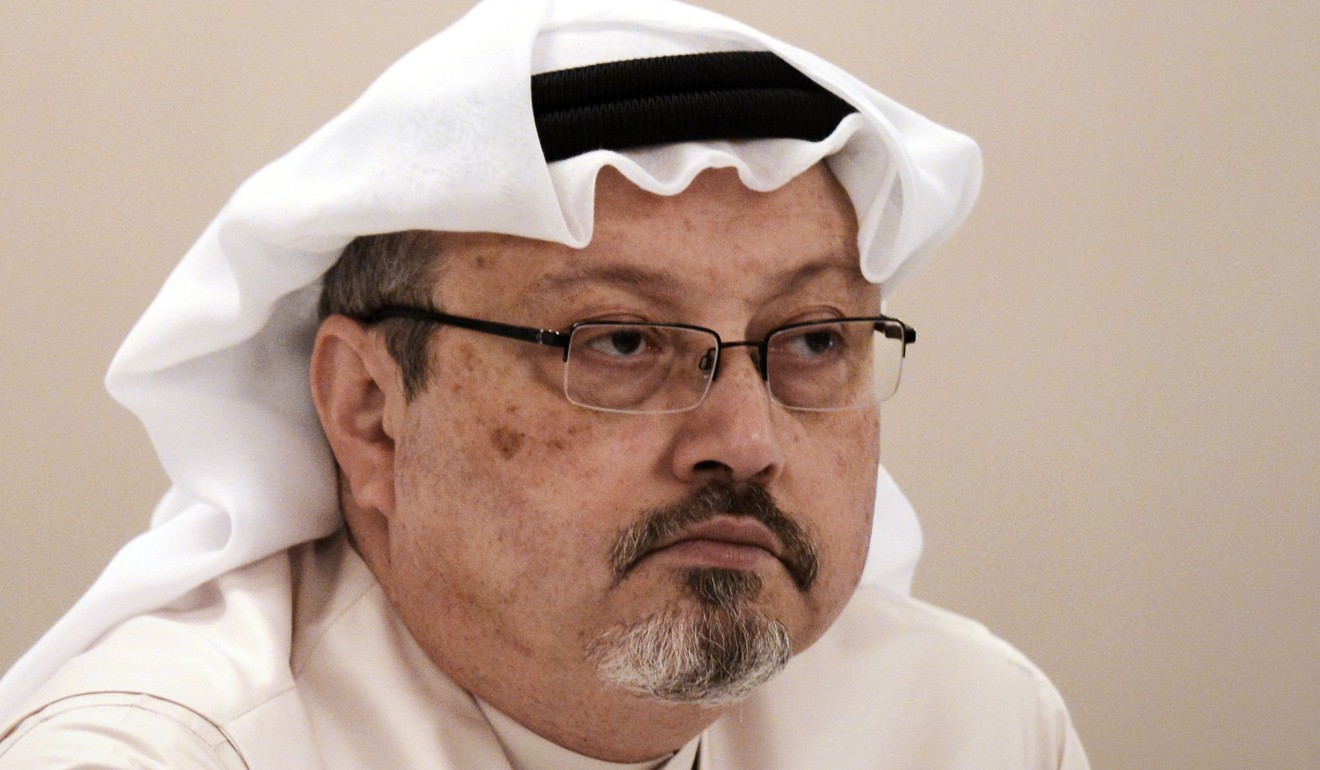
Crisis over Jamal Khashoggi’s disappearance suggests Saudi Crown Prince Mohammed bin Salman has overplayed his hand
- President Trump signalled his confidence in intelligence suggesting Khashoggi has been killed – and that Riyadh was involved
- Turkish President Recep Tayyip Erdogan may see an opportunity to drive a wedge between the US-Saudi alliance
The Saudi journalist Jamal Khashoggi’s disappearance and alleged murder has erupted into a full-blown scandal after two weeks of grisly revelations, prompting US Secretary of State Mike Pompeo to get on his horse and visit Riyadh and Ankara, where he has probably negotiated with both sides for a face-saving way to end a burgeoning crisis.
That the Americans are finally stepping in after weeks on the sidelines makes sense, as this crisis is partly on them: lost in the ever escalating series of leaks from Turkish intelligence of the horrifying details of what may have transpired in the Saudi embassy in Istanbul is the question of “why?” Why would Saudi Arabia reach across borders, into a chief regional rival, and carry out an operation of this sort without expecting serious blowback?
Emboldened by this convergence of interests with the Trump administration, MBS went on to isolate Qatar from the Gulf Cooperation Council (GCC) and doubled down on the disastrous war in Yemen despite howls of protest from much of the rest of the world. He even managed to get the Lebanese Prime Minister Saad Hariri to fly to Riyadh for what he thought was a camping trip and, while there, pressure him to resign. Hariri was then forced to read a scripted resignation letter on television – it sounded like an anti-Iran manifesto.
These audacious moves were met with hardly any resistance from Washington. Indeed, when Rex Tillerson, the former US secretary of state, called on Riyadh to temper its actions on Qatar, Yemen, and Lebanon, he was swiftly overruled by Trump, and was fired a few months later. Given what appeared to be full backing for his actions by the Americans, MBS must have calculated that taking out a prominent critic like Khashoggi might have raised a few eyebrows but would blow over shortly.
Turkey is the only country that can lead the Muslim world
But the crown prince may have overplayed his hand this time. The massive blowback has already tarnished his reputation and led to a rare instance of bipartisanship among US lawmakers, who have questioned the kingdom’s special relationship with Washington and threatened punitive measures if it is proven Khashoggi was indeed killed in a Saudi Arabian operation.
The White House is now on the back foot, jockeying to protect its client just as King Salman has climbed down from his throne to clean up after his son.
Given the outcry, however, there is a limit to what the Americans can do. The US has been steadily walking back its initial stance on Saudi Arabian innocence in the affair, and in a significant break on Friday, Trump signalled his confidence in intelligence from multiple sources that Khashoggi had been killed, and that Riyadh had a role in the affair.
In doing so, Trump appeared to acknowledge the far-reaching consequences of the incident, and the impact it will have on the regional power balance, particularly the primacy of the US-Saudi alliance and its efforts to keep Iran in check.
Now, it is Turkish President Recep Tayyip Erdogan who holds the upper hand. Erdogan has curiously remained silent while officials and newspapers close to him kept leaking critical information from the ongoing investigation. By doing so, he has allowed pressure build up on the Saudis while keeping the door open for negotiations. And it has worked. A week into the investigation, Erdogan’s phone finally rang, and it was King Salman who was on the other end of the line. A few days later, Pompeo knocked on his door.
Washington Post publishes last piece by missing Saudi journalist Jamal Khashoggi
What has become an embarrassment for the Saudis and a foreign policy crisis for the US gives Erdogan an opportunity to recalibrate his relations with Riyadh and Washington; only this time, the cards are in his favour.
The most recent leak from the Turkish investigation, an alleged audio recording of Khashoggi’s gruesome killing in front of the Saudi consul, suggests what Erdogan may have in mind. Rather than seeking concessions from Riyadh, he may have decided to heighten the pressure on them to the point of humiliating and diminishing Saudi Arabia in a bid to assume Turkish leadership in the region. His ambitions were laid out starkly when he said earlier this week, during a meeting with religious officials, that “Turkey is the only country that can lead the Muslim world”.

The two countries have been drifting apart over the past decade. At the height of the Arab spring, for instance, while the Saudis were busy suppressing protests in Bahrain, Erdogan was indirectly inciting the crowds in Cairo, which eventually brought then-president Hosni Mubarak down. More recently, when the Saudis cut diplomatic ties with Qatar and pulled the plug on its food supply, Turkey threw its weight behind the emirate and became its lifeline.
In Syria, the two countries began their campaign against Bashar al-Assad as allies, but have now found themselves on opposing sides. Turkey, disappointed by American support for Syrian Kurds, initiated rapprochement with Russia and Iran, while the Saudis ended up supporting the US-Kurdish alliance in Syria to the tune of millions of dollars.
Jamal Khashoggi disappearance: too much at stake for Saudi Arabia to face any real punishment
Erdogan may use the Khashoggi incident to elevate his country over its main regional rival and, as a Nato partner, may be able to drive a wedge between the US and the Saudis that his country and Qatar can exploit. Framed this way, Turkey’s release of American pastor Andrew Brunson from jail falls into place as a gesture of goodwill towards the White House.
The Turkish president has remained silent as the case continues to build and roil the region with each passing day. That means all options are still on the table. His phone may ring again soon.
Serkan Yolacan is a Research Fellow with the National University of Singapore’s Middle East Institute

